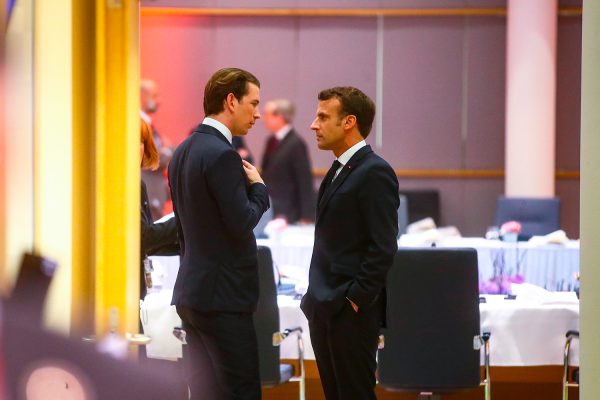
The 2020 Munich Security Conference saw French president Emmanuel Macron reaffirm his eagerness to turn Russia into a security partner, suggesting that “we have to restart a strategic dialogue.”
But Russia hasn’t been a part of Europe for a while and doesn’t belong in a conversation about European autonomy. The only thing that ties it to Europe is geography.
Differences matter
Macron argues Russia has been alienated. Last year, he said “pushing Russia away from Europe is a major strategic error.”
But it’s not Europe that has pushed Russia away; Russia has isolated itself by annexing the Crimean Peninsula from Ukraine, using energy as a weapon against its former satellite states in Eastern Europe and backing Bashar Assad’s regime in Syria.
Vladimir Putin, Russia’s leader, does not believe in universal values and resists the West’s ideological intrusion into other countries. He fears that such encroachments can destabilize regimes like his own.
Europe’s eastern member states have lived the alternative: they only escaped from Soviet rule in the early 1990s. Their anxieties about Russia haven’t gone away, which is why Macron’s comments undermine European solidarity.
Actual pragmatism
Macron wants a pragmatic relationship with Russia. This requires at least some mutual interests.
Consider the Sino-Russian relationship. The two powers share an interest in curbing American influence and have complementary energy needs. They also share a similar political configuration, characterized by power centralization.
Military cooperation has been central to the relationship. China and Russia have held several joint military exercises. Russia supplies China with 68 percent of its foreign arms.
The EU and Russia, by contrast, have no geopolitical interests in common. Whether Macron likes it or not, the EU’s economic and security interests argue for an alliance with the United States.
The EU and Russia have corresponding energy needs. But it is dangerous to build an entire relationship on fuel, particularly in the absence of trust.
Reality
Macron worries that isolating Russia will push it closer toward China. There are reasons to doubt this will happen.
A formal alliance with Russia could undermine China’s geopolitical and geoeconomic position. It gains billions in trade, technology and investment from the West every year. The Chinese may consider Russia a useful counterweight to American preponderance in East Asia, but they would be foolish to cut ties with the West.
It is why Sino-Russian negotiations tend to be slow and unproductive. China doesn’t appear to be interested in taking the relationship to the next level.
Russia will probably keep trying. As Europe works to reduce its dependence on Russian oil and gas, China will become a more important customer to Russia. Unless Macron is comfortable relying on Russia to meet Europe’s energy needs, he won’t persuade the Russians to stop looking east.
A genuine partnership with Russia would undoubtedly benefit Europe, but there are reasons beyond political will for why that partnership doesn’t exist. If Macron is serious about normalizing relations, he should focus on those reasons and not skip ahead to his desired outcome.
